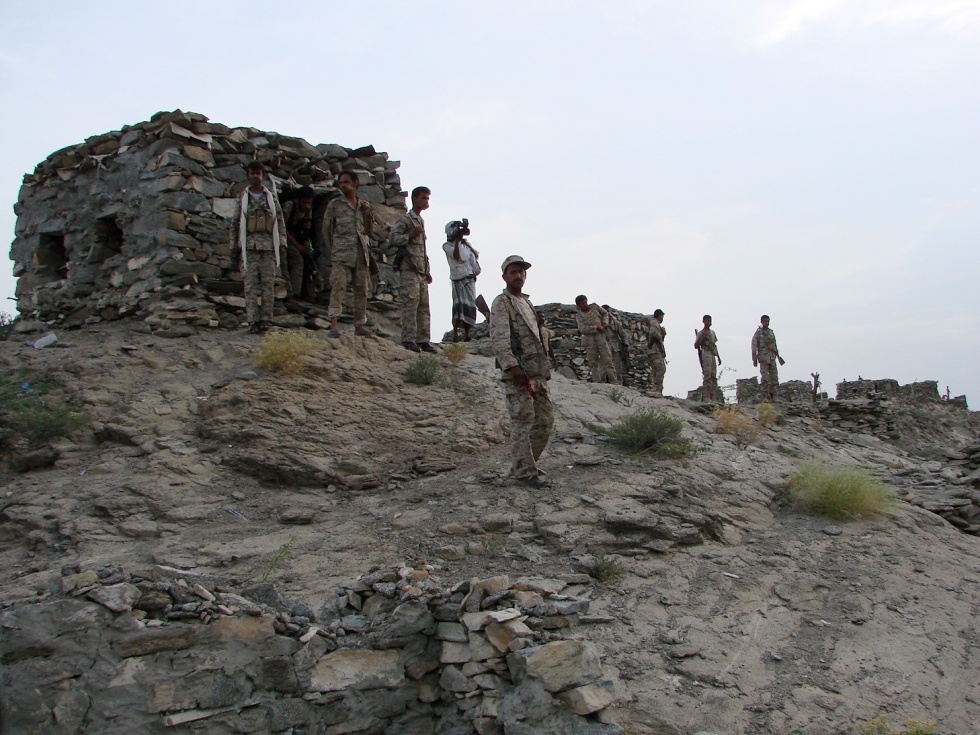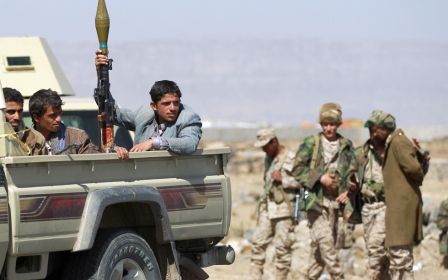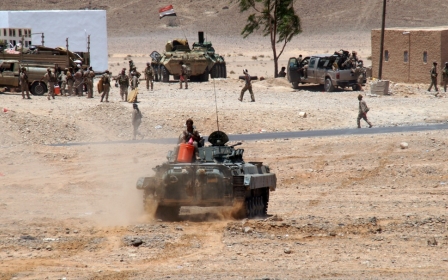Yemen struggles to cement support for offensive

Contrasting statements by Yemeni officials about the country’s strikes against al-Qaeda in the Arabian Peninsula suggest the government is struggling to hold a united front when attempting to shape world and domestic opinion on its offensive.
On 5 May, Mohammed Albasha, Yemen’s official spokesperson in Washington DC, took to Twitter to announce that Yemen was engaged in an "open war" with al-Qaeda in the Arabian Peninsula (AQAP). His remarks came amid a daily stream of statements from the Defence Ministry regarding successful operations against AQAP fighters.
However, reports of diplomatic fallout following the deportation of two foreign freelance journalists last week suggest all is not well in the media environment.
One of the reporters, Adam Baron, wrote a piece published on 5 May in the Christian Science Monitor that Yemen’s government “can no longer spin its anti-al Qaeda operations” as it had planned, thanks to expanding Internet access and Twitter use.
Following the report, Mohammed Albasha, Yemen’s press attaché in Washington, unexpectedly lent his support to Baron, Tweeting his "strong" objection to the journalist’s deportation.
Twelve hours later, though, the official announced his decision to take a break from Twitter during these “stressful times”.
This is not the first split to appear in Yemen’s communications agenda.
On Tuesday, the Yemeni news site al-Mashhad al-Yemeni reported a statement by General Mahmoud al-Sabihi, a top military figure who led an extended operation in the far southern town of al-Mahfid.
In the announcement, Sabihi mentioned that large numbers of AQAP fighters had escaped, after an explosion at the city’s governmental complex.
However, a second, unnamed, military source cited by CNN Arabic forcefully denied these “rumours”, which had been widely reported on satellite channels and in online news outlets.
‘These are nothing but mendacious and harmful media leaks. There is no authentic basis to them’, he said.
Public discord
An analyst living in Yemen, who wished to remain anonymous, told MEE that the government does enjoy some support for its latest military offensive – but not when it comes to joint unmanned warfare operations with the US.
‘In general, there appears to be notable support for the army’s offensive in the Southern province. This is in sharp contrast to widespread opposition to US drone strikes.’
Mohammed al-Gawli, who heads Yemen’s National Organisation for Drones Victims, told a different story about how the security measures are affecting the population.
‘Since the start of this military campaign, the electricity supply has been as good as non-existent for most Yemenis. Even Sanaa has lost its electricity and oil services.’
He also complained of the deteriorating security situation, which in the last week has seen high-profile targets in built-up areas of the capital attacked, as well as an increased number of checkpoints.
According to al-Gawli, the majority of Yemenis do not believe that the current project is the best way forward.
“The state should enter into dialogue with these groups in order to stabilise the situation and allow us to access basic services”.
Economic worries
Meanwhile, cracks are also beginning to show in Yemen’s economy.
Masood Ahmed, head of the IMF’s Middle East and Central Asia department, warned on Wednesday morning that Yemen is now in need of ‘urgent’ financial support, according to Reuters.
While he avoided describing Yemen’s fiscal situation as a crisis, he said he could confirm that the country is in ‘increasing need’ this year.
In a country where 70 percent of the GDP is based on profits from oil exports, internal instability has had a major effect on its economic indicators.
According to Reuters, on 7 May assailants again targeted Yemen’s primary oil pipeline, which transports crude from Maarib oilfields in central Yemen to the Red Sea terminal of Ras Isa for international export.
The pipeline was closed after the incident, while simultaneous attacks on power lines caused electricity outages in the majority of Yemen’s northern cities.
Pipelines and power lines are frequently subject to targeting, and with oil making up 90% of Yemen’s exports, it is likely that this most recent attack will increase Yemen’s economic downturn.
Middle East Eye propose une couverture et une analyse indépendantes et incomparables du Moyen-Orient, de l’Afrique du Nord et d’autres régions du monde. Pour en savoir plus sur la reprise de ce contenu et les frais qui s’appliquent, veuillez remplir ce formulaire [en anglais]. Pour en savoir plus sur MEE, cliquez ici [en anglais].



